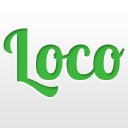Uncovering the Best Okapi Framework Alternatives for Seamless Localization
The Okapi Framework stands as a robust, cross-platform, and free open-source solution, offering extensive support for localizing and translating documentation and software. Its core mission is to empower developers and localizers to craft new localization processes or enhance existing ones, all while upholding compatibility and interoperability. The project actively embraces and promotes open standards whenever feasible. However, even the most comprehensive tools may not always be the perfect fit for every unique workflow or project requirement. If you're seeking an Okapi Framework alternative that better aligns with your specific needs, you're in the right place.
Top Okapi Framework Alternatives
While Okapi Framework offers a powerful suite of tools, several other excellent options are available that might provide a more tailored experience for your localization projects. Let's explore some of the top alternatives worth considering.

Mojito (by Box)
Mojito (by Box) is an excellent open-source automation platform designed for continuous localization in software development. As a free and open-source solution, Mojito is available across Mac, Windows, Linux, and can be self-hosted, making it a highly flexible alternative to Okapi Framework for teams prioritizing continuous integration in their localization workflow.

md2xliff
md2xliff is a specialized Markdown to XLIFF and XLIFF to Markdown converter, ideal for those who work extensively with Markdown documentation and need robust translation capabilities. This free and open-source tool supports Mac, Windows, and Linux, offering a focused approach to document translation that complements or extends the functionalities found in Okapi Framework, particularly for text-based content.

WebTranslateIt
WebTranslateIt provides a straightforward way to translate software, combining software translation and project management into a single platform. Available as a Freemium, paid Web, and Software as a Service (SaaS) solution, it offers a more managed and collaborative environment compared to the self-hosted nature of Okapi Framework, making it suitable for teams looking for an all-in-one cloud-based solution.

Loco Translate
Loco Translate simplifies the process of developing multi-language apps and websites, especially for WordPress users. Offering both Free and Pro plans, this Freemium and paid Software as a Service (SaaS) solution is also available as a WordPress plugin. It's an excellent Okapi Framework alternative for developers and agencies focused on WordPress projects, providing integrated translation management directly within the CMS environment.
Ultimately, the best Okapi Framework alternative for you will depend on your specific project requirements, team size, budget, and desired level of integration. We encourage you to explore these options further to find the perfect fit that streamlines your localization workflow and helps you achieve your global goals.